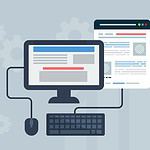Business
Harnessing the Power of Marketing Automation for Enhanced Customer Engagement and Efficiency
Introduction to Marketing Automation
In an era where efficiency is king, businesses are turning to technology solutions that can multiply their marketing efforts. Enter marketing automation: a technology that automatically manages marketing processes and multifunctional campaigns across multiple channels. By leveraging marketing automation software, companies are redefining customer engagement, boosting operational efficiency, and freeing up valuable time for strategizing and creative endeavors.
Marketing automation software automates repetitive tasks related to marketing activities. It serves various functions, including managing campaigns and providing customer insights. As it evolves, its value proposition grows, particularly for segmenting consumers, deploying targeted campaigns, and analyzing marketing efforts’ outcomes. Marketing automation is essential for crafting personalized user journeys that resonate with individual preferences and behaviors.
Key Features of Marketing Automation Platforms
Marketing automation platforms are renowned for their features like email campaign management, lead scoring and real-time analytics. These tools enable marketers to design, execute, and measure tailored emails, identify potential customers based on engagement and readiness to purchase, and track campaign effectiveness. They are highly sought after for their ability to manage all customer touchpoints seamlessly and consistently, providing a coherent and professional brand image. The platform’s flexibility and adaptability are further emphasized by its dynamic content and integration capabilities, which enable smaller marketing teams to compete with larger ones, leveling the playing field in various industries. These features enable a minor marketing team to wield the same power and presence as their larger counterparts, enhancing their competitiveness.
Improving Customer Experience with Personalization
In the digital age, businesses must tailor their messaging to each individual, making it feel tailored to them. Marketing automation helps businesses extract valuable insights about customer preferences and behaviors by dividing a customer base into groups based on shared characteristics or behaviors. This division allows for content that meets each group’s unique needs and interests. Personalization, such as personalized emails and targeted ads, can increase customer loyalty and bottom-line impact. Studies consistently show that personalized marketing campaigns yield higher conversion rates, deeper customer engagement, and increased revenue. Focusing on the individual can pay significant dividends for the collective success of the business, as it ensures that consumers feel understood and valued by the brands they patronize.
Streamlining Marketing Efforts
Marketing automation tools are essential in modern marketing, as they streamline efforts and focus on strategic tasks. Automation reduces human error and increases campaign efficacy by centralizing activities like email campaigns, social media scheduling, and ad placements. It is beneficial for scheduling and posting content across platforms, eliminating the need for manual updates and ensuring consistent and timely distribution. Integrating various marketing tools simplifies the overall process and provides a single source of truth for campaign management. Many automation software options also offer workflow features that enable team members to collaboratively design, execute, and monitor each campaign step, promoting transparency and accountability. It benefits businesses aiming to optimize their marketing initiatives and foster a culture of continuous improvement.
Marketing Automation and Sales Alignment
By aligning marketing and sales through shared data and integrated systems, marketing automation can significantly impact sales. It can enhance lead qualification, shorten the sales cycle, and ensure a cohesive customer journey from initial interest to final purchase. Features like lead scoring help identify leads most likely to convert based on their engagement with marketing materials, increasing efficiency and effectiveness. Synchronizing marketing and sales efforts ensures a personalized and informed sales approach. Collaboration between marketing and sales also fosters more targeted content creation, as sales teams provide valuable feedback that informs marketing content creation. Automation tools can efficiently disseminate this content, closing the loop between customer feedback and content marketing efforts.
Overcoming Common Challenges with Marketing Automation
Marketing automation is a technology that enhances the marketing process, not replaces it. Businesses must remain involved in their campaigns to avoid robotic or impersonal messages. Data hygiene is crucial, as inaccurate information can lead to misguided marketing efforts. Regular cleansing, accurate segmentation, and data management best practices can help mitigate these challenges. Implementing marketing automation software requires a learning curve and ongoing training to maximize its potential. Regular training ensures the marketing team can use the software’s features proficiently. Successful marketing automation deployment depends on balancing automation’s efficiency and the marketing team’s insight. Continuous assessment and adaptation of automated strategies can help businesses stay on track and fully utilize their marketing automation investments.
Measuring the Success of Marketing Automation
To effectively utilize marketing automation, businesses must define and track key performance indicators (KPIs) such as conversion rates, email open rates, click-through rates, and ROI. Real-time analytics and dashboards provide ongoing campaign feedback, allowing for swift adjustments. A/B testing is crucial for comparing different campaign versions to determine the best messaging, design elements, and timing for customer interactions. Advanced analytics also allow businesses to measure customer engagement more deeply, understanding the customer journey from initial touchpoint to post-sale follow-up. These metrics guide marketing automation strategies toward greater efficacy and impact.
Related Posts











